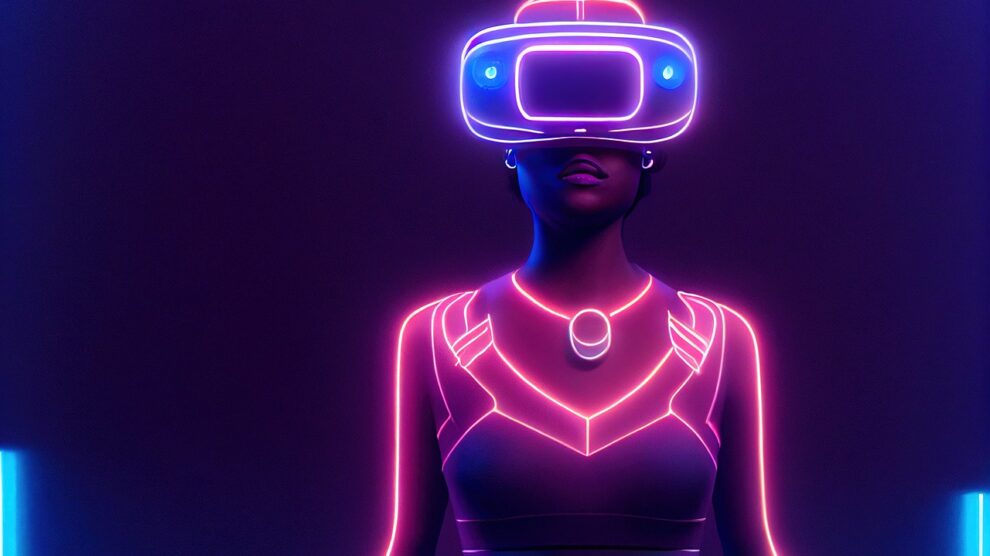Millennials make up at least 25 percent of the US population. They often research online, visit stores to test out products, and religiously read those products’ reviews. Their purchasing journey is longer than other generations, but they also spend more money overall.
Successful companies recognize that millennials are not just another demographic — they are a generation deeply intertwined with technology and a hunger for immersive experiences that resonate with their digital-savvy nature. Understanding their preferences and embracing innovative approaches is the key to forging a powerful connection with this influential audience.
The Power of Virtual Reality
Millennials’ daily lives revolve around technology, from smartphones and social media to augmented reality (AR) games. This digital upbringing has molded them into a generation that embraces technology as an integral part of their existence.
Virtual reality (VR), with its promise of heightened interactivity and immersion, aligns seamlessly with millennials’ preferences for cutting-edge experiences that push the boundaries of innovation. By harnessing this type of technology, brands can unlock the door to an entirely new realm of engaging and memorable interactions.
One of the most significant advantages of VR lies in its ability to evoke powerful emotions and forge genuine connections with its users. Immersive experiences, such as walking through a digital art gallery, exploring exotic landscapes, or participating in virtual adventures, evoke a wide range of feelings that leave a lasting impact on millennials. VR has the remarkable ability to stimulate joy, awe, curiosity, and even empathy, enabling brands to establish an emotional bond that transcends traditional advertising methods.
For example, a travel agency could have consumers use VR to experience what it would be like to visit a destination, or a car company can have potential consumers “test drive” a car before purchasing it. Walmart launched an immersive experience in Roblox, dubbed Walmart Land and Walmart’s Universe of Play — each of which offers interactive content for their consumers. Consumers can make wishlists or play with products before purchasing them.
Moreover, millennials are renowned for their enthusiasm for sharing experiences with their social circles. VR activations present an ideal platform for creating buzz-worthy content that millennials are eager to share with friends, family, and followers. The allure of being the first to experience groundbreaking VR content and sharing these captivating moments on social media amplifies brand reach, fostering organic word-of-mouth marketing that can exponentially expand brand visibility.
Always at the Cutting Edge: First-time Experiences
The draw of exclusive experiences holds an irresistible pull for millennials. Whether it’s a product unveiling, a sneak peek into a new service, or an invite-only event, the element of exclusivity ignites curiosity and fosters a sense of belonging among millennials. The desire to be part of an exclusive circle drives them to engage more deeply with the brand and fosters a sense of loyalty that extends far beyond the initial encounter.
First-time experiences also present a tremendous opportunity for brands to foster viral moments and social sharing. Millennials are natural sharers, and when a brand delivers a unique and captivating activation, it can trigger a wave of social media sharing. This exponential spread of content not only amplifies the brand’s reach, but also generates authentic word-of-mouth marketing, reinforcing the brand’s position at the cutting edge.
Enhancing Consumer Data Collection through Immersive Experiences
Immersive experiences often require users to log in or sign up to access exclusive content or participate fully in the virtual encounter. These interactions serve as invaluable touchpoints for data capture. By designing user-friendly registration processes that encourage engagement, brands can obtain essential demographic information and preferences directly from their millennial audience. This data becomes the foundation for developing personalized marketing campaigns that resonate deeply with each individual.
Compared to conventional marketing efforts, immersive experiences have the advantage of capturing consumer data in real-time and in contextually relevant settings. Brands can monitor users’ interactions, behaviors, and engagement levels throughout the experience, generating a wealth of data about their preferences, interests, and emotional responses. This real-time data collection enables brands to make data-driven decisions quickly, enhancing the agility and responsiveness of their marketing strategies.
By seamlessly integrating data capture into immersive activations, brands send a powerful message to millennials that they are understood as an audience. Millennials value brands that respect their privacy while delivering personalized experiences. Transparent data collection within immersive encounters demonstrates the brand’s commitment to understanding their target audience’s preferences and providing tailored experiences that resonate with their individual interests.
The Future of Brand Experience for Millennials
As technology continues to advance exponentially, the future of brand experiences for millennials promises to be even more immersive and transformative. VR and AR will likely take center stage as powerful tools for crafting captivating and interactive encounters. Brands will increasingly harness these technologies to create hyper-personalized experiences that cater to the unique preferences and interests of individual millennials.
The rise of extended reality (XR) will blur the boundaries between physical and virtual realms, allowing brands to orchestrate seamless and multi-dimensional experiences that fully engage all the senses. Immersive activations will evolve beyond standalone events, becoming part of a larger experiential ecosystem, where consumers can interact with brands across multiple touch-points and platforms.
Moreover, the integration of artificial intelligence and data analytics will revolutionize immersive experiences. AI-powered personalization engines will enable brands to dynamically adapt content based on real-time data, ensuring that each interaction feels tailored and relevant to the individual millennial. Data-driven insights will continue to play a pivotal role in refining marketing strategies and creating experiences that resonate authentically with the target audience.
The future of brand experiences for millennials will be characterized by a seamless blend of storytelling and gamification. Brands will curate interactive narratives that immerse millennials in compelling storylines, where they play an active role in shaping the outcomes. Gamified experiences will tap into millennials’ love for challenges and rewards, fostering deeper engagement and loyalty.
By recognizing the significance of creating immersive experiences for millennials, brands can break through the noise of a crowded marketplace, leaving a remarkable impact on their audience. With the ability to cultivate strong brand affinity and foster unwavering loyalty, immersive brand experiences prove to be the gateway to establishing enduring relationships with this influential and ever-evolving generation.





